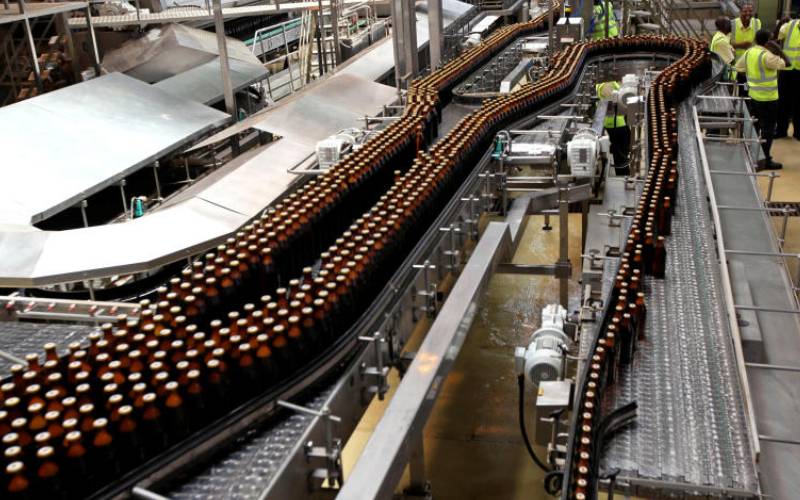Beer bottles roll on a conveyor belt at the East African Breweries Ruaraka factory in Nairobi, Kenya, February 17, 2010.[Courtesy] Some of the world’s biggest alcoholic beverage manufacturers selling their products in Kenya and the region are being investigated for practices that hamper cross border trade.
The companies are also in the spotlight for putting in place marketing structures that could be denying consumers across the Common Market for Eastern and South Africa (Comesa) region the benefits of competition in the alcoholic beverages industry.
The Comesa Competition Commission (CCC) is looking into whether the companies have violated the rules set for trading within the trading block.
The companies are alleged to have put in place structures that focus on marketing their products within a country, which according to the Comesa competition watchdog, confine dealers and other partners to a particular country – hindering the deepening of trade within Comesa. READ MORE
Some companies also have arrangements among themselves that make them appear like they are colluding.
The companies being probed include Diageo (majority shareholder in East African Breweries Ltd (EABL) and AB InBev (which merged with SAB Miller a few years back and is behind key brands like Castle and Corona).
Others are Castel and Heineken.
“Notice is hereby given to interested stakeholders and the general public that pursuant to Article 22 of the Comesa Competition Regulations, the Comesa Competition Commission has commenced investigations into potential violations of Articles 16 and 19 of the regulations by beer manufacturing companies operating in the Common Market, namely AB InBev, Castel, Diageo and Heineken,” said the Competition Commission.
“Article 16 of the Regulations prohibits all agreements which may affect trade between the Member States and have as their object or effect the prevention, restriction or distortion of competition in the Common Market.”
The Commission said Article 19 prohibits agreements or arrangements between competitors which, among others, allocate customers and markets within the Common Market.
"The Commission has observed that the manufacturers have market allocation arrangements among themselves and territorial restrictions in their distribution agreements with third-party independent distributors.”The Competition Commission has invited members of the public from across Comesa to give their views on the issues.“The Commission has preliminary concerns that the market allocation and territorial restrictions reinforce national borders thus affecting trade between the Member States and restricting competition in the Common Market,” said the commission.“As such, the Commission will assess the agreements and existing arrangements to determine their […]
